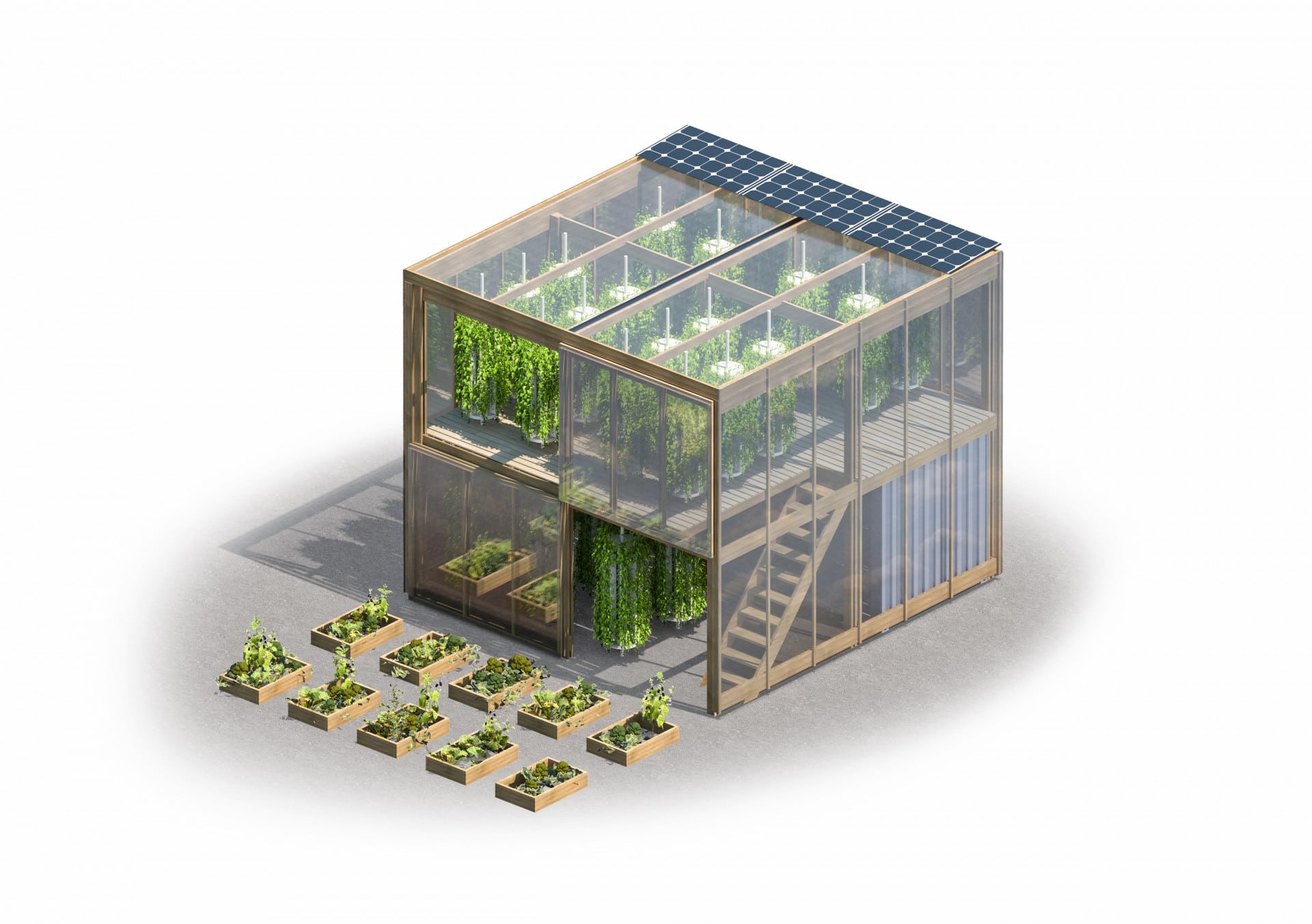Denmark (Copenhagen)
The age of the flatpack farm has dawned. That’s the ambition of green-thumbed urban innovators Mikkel Kjaer and Ronnie Markussen of Human Habitat. The Danish duo have designed an assembly-kit of ready-made components to make a two-storey vertical hydroponic (soil-free) farm, which comes in a shipping container – in the hope to increase food security in cities, lower the ecological footprint of food production, create jobs and easily adapt to changes in the urban landscape.
“We want to reconnect people to food by giving them a green space that brings nature back into our cities,” says Kjaer, who is interested in “small-scale solutions to the most fundamental of problems – providing food”. Designed to be self-sufficient, by using clean sun or wind energy and collected rainwater, an Impact Farm can be installed anywhere in under 10 days.
The pair’s target market is the US, because many American cities are pockmarked by empty, underused space, food deserts, and endemic underemployment. Urban farms are a potential solution to all such problems – all within a production area that stretches to 50 sq m (538 sq ft). For independent businesses looking to sell herbs and micro-greens to restaurants and markets, one kit could produce nearly 3 tonnes per year. A larger, community-driven project – for example, one seeking to produce vegetables, leafy greens and fruit for distribution to schools, kindergartens and nursing homes – the yield could double. Construction of the first hydroponic Impact Farm begins this month in Copenhagen’s Nørrebro neighbourhood: “It will have an estimated maximum production capacity of 6.2 tonnes per year,” says Kjaer.
For now, the pair is concentrating on building pop up urban models in abandoned parking lots or vacant land between buildings. Next, they hope to develop a modified version in more affordable materials for more demanding environments, to help address humanitarian crises – especially where people are packed into refugee camps. They are reaching out to potential collaborators such as NGOs and intergovernmental organisations for funding.
Adapted from a feature in Collectively. Read what happened when they chatted to our Editor, Lisa Goldapple, about Atlas of the Future.
Project leader
Mikkel Kjaer and Ronnie Markussen, Co-founders, Human Habitat
Support the Atlas
We want the Atlas of the Future media platform and our event to be available to everybody, everywhere for free – always. Fancy helping us spread stories of hope and optimism to create a better tomorrow? For those able, we'd be grateful for any donation.
- Please support the Atlas here
- Thank you!




Hello. We are interested to make this available for Saudi Arabia.
Yusuf
Delham Smart Farms
Delham International Inc.
Hello, I’d like to implement this in Canada, please information regarding it.
Hi from Portugal!
I would like additional information.
Thank you and best regards,
Orlando Vila